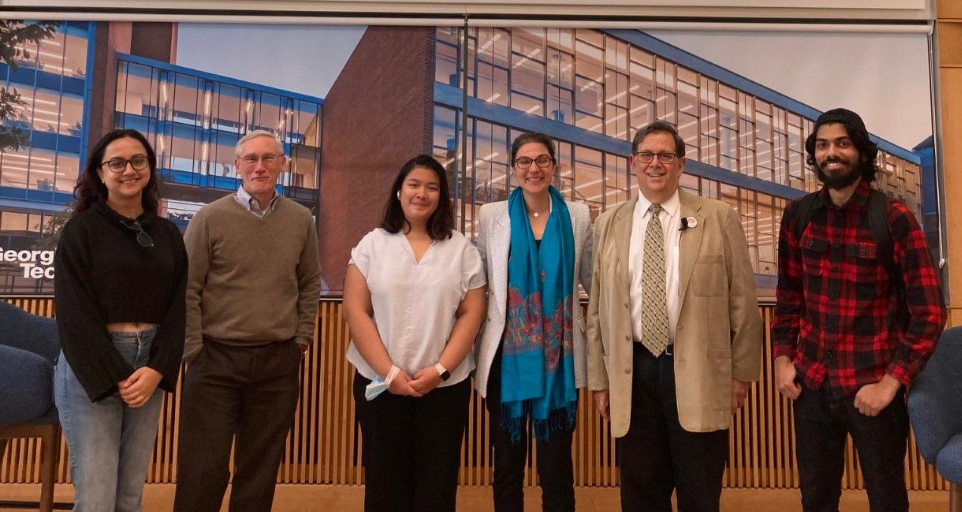After announcing the new Master of Science in Global Development program in late April of this year, the associated departments at Tech celebrated the launch of the degree with a week of events highlighting the importance of global development and ongoing projects on the specific subject at the Institute.
The Sam Nunn School of International Affairs defines global development as “a field that seeks to address the critical challenges of rapid urbanization, climate change, poverty and inequality, and improving the socio-economic wellbeing of citizens across the globe.” Previous definitions of development have focused on economic development, but recent pushes have measured other metrics that comment more on the health and quality of life of people around the world.
Previously, Tech has offered an undergraduate minor and graduate certificate in the subject, but the new master’s degree had its first cohort start this fall. The program takes one year to complete and is a collaboration between the School of Economics, the Sam Nunn School of International Affairs, and the School of City and Regional Planning.
“It’s going to be a very interdisciplinary curriculum and that is sort of our main highlight — that this degree is meant for students to get exposed to global development ideas in different ways,” said Shatakshee Dhongde, associate dean for academic affairs in the Ivan Allen College of Liberal Arts and associate professor in the School of Economics.
Dhongde said the required classes are spread across all of the participating schools, and the topics covered in the degree align with the guidelines set forth by the United Nations’ (UN) Sustainable Development Goals.
The involved schools celebrated the new master’s program from Oct. 24-27 and included many events highlighting the different facets of global development.
The week kicked off with three events on Oct. 24, first featuring speakers on sustainable communities of all population densities. Another later event featured rapid fire presentations on global development with faculty from international affairs, interactive computing, city and regional planning, and economics, highlighting the breadth of disciplines involved in researching global development. The night ended with a reception for the launch of the global development degree and featured prominent speakers from the various colleges.
The next day had an alumni career panel spanning different disciplines and regions of the world. Alumni joined from India, Jamaica and the Carter Center in Atlanta to talk about their work and how it fits into global development initiatives. Although the global development program has spawned no alumni yet, Dhongde said alumni from the three schools supporting the degree were featured.
On Oct. 26, the program hosted a Global Perspectives on Gender and Development event that featured professors and students sharing their research. Some projects focused on individual countries or states while others looked at global trends. Topics ranged from unemployment and displacement, designing artificial intelligence in healthcare, armed conflicts, and representation of women in politics.
All of these presentations touched on race, gender, class and age and how these factors can affect the people living in different parts of the world.
The week concluded on Oct. 27 with a panel that discussed the implications of community responses to global health challenges. Dhongde stressed the importance of considering health in measurements of global developments and emphasized the impact the COVID-19 pandemic had on the field of research in April.
While Global Development Week is over, the degree is still teaching its students how to understand a connected world and what opportunities there are for improvement in all aspects of human life. Dhongde admitted that some of the problems students will face may be enormous, but the resources and knowledge at Tech can help them enter the field more confidently.
“All of these are big challenges, but we do want to train students who can make even a tiny bit of difference in a positive way in the world,” Dhongde said.
